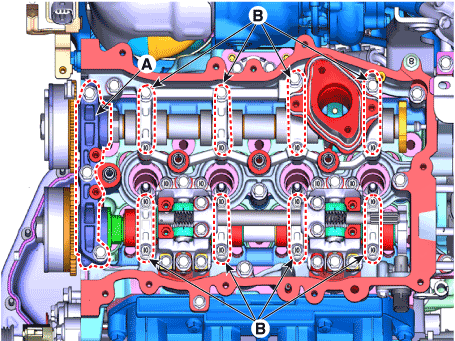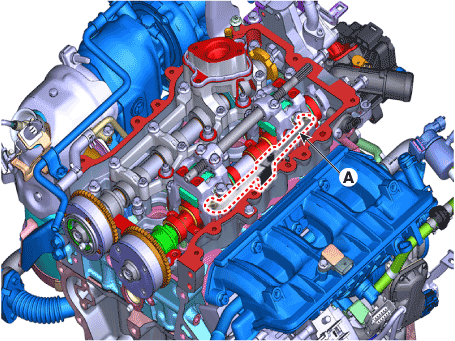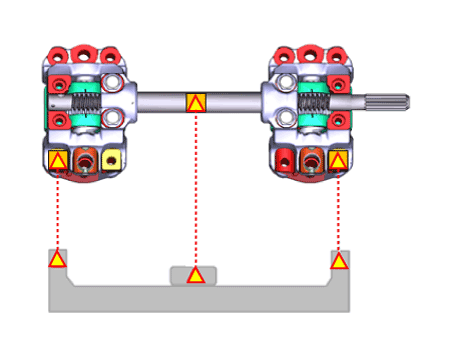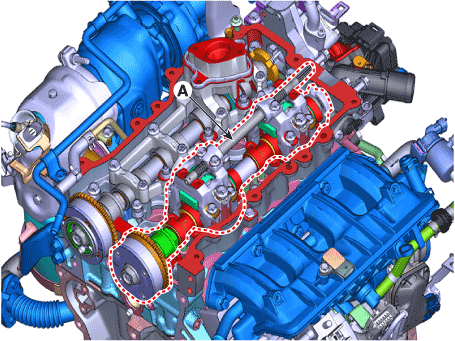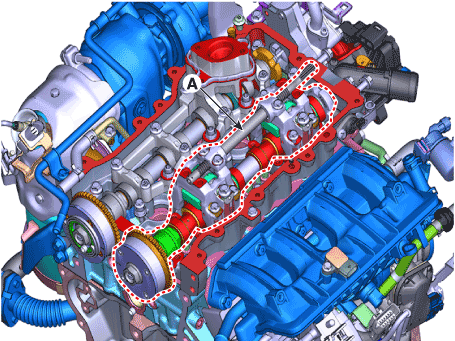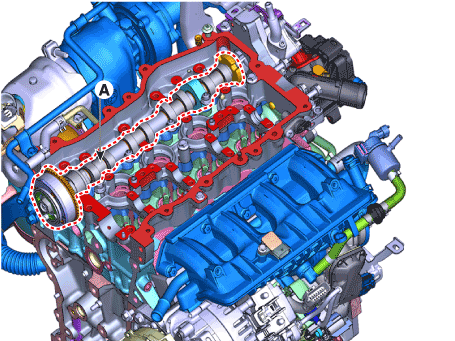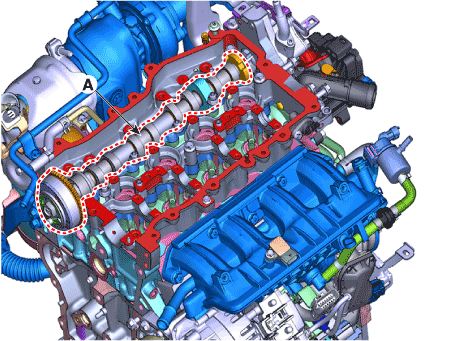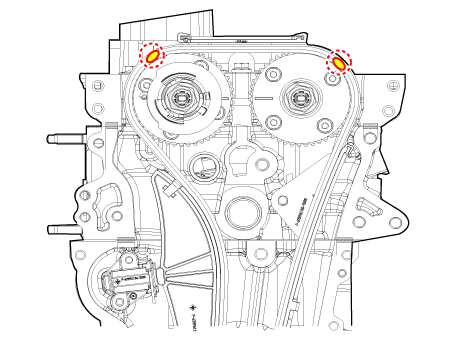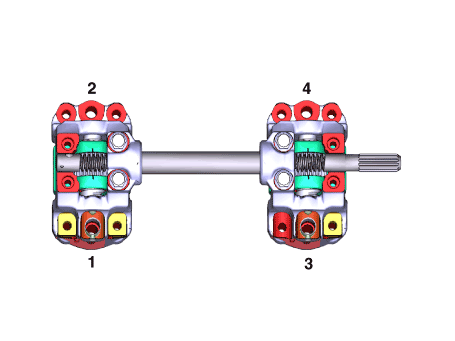Hyundai i-30: Cylinder Head Assembly / CVVD Assembly
Hyundai i30 (PD) 2018-2025 Service Manual / Engine Mechanical System / Cylinder Head Assembly / CVVD Assembly
Description and operation
| Description |
CVVD (Continuous Variable Valve Duration) System is a device to control the
optimum open and close timing according to the driving mode by changing the
valve opening section.
It is composed of cam shaft, CVVD assembly, and CVVD acatuator.
The valve opening time operates in proportion to the rpm of control shaft.

| Operation Principle |
[CVVD System Operating Mode]
| Optimum Valve Timing by Engine Load |
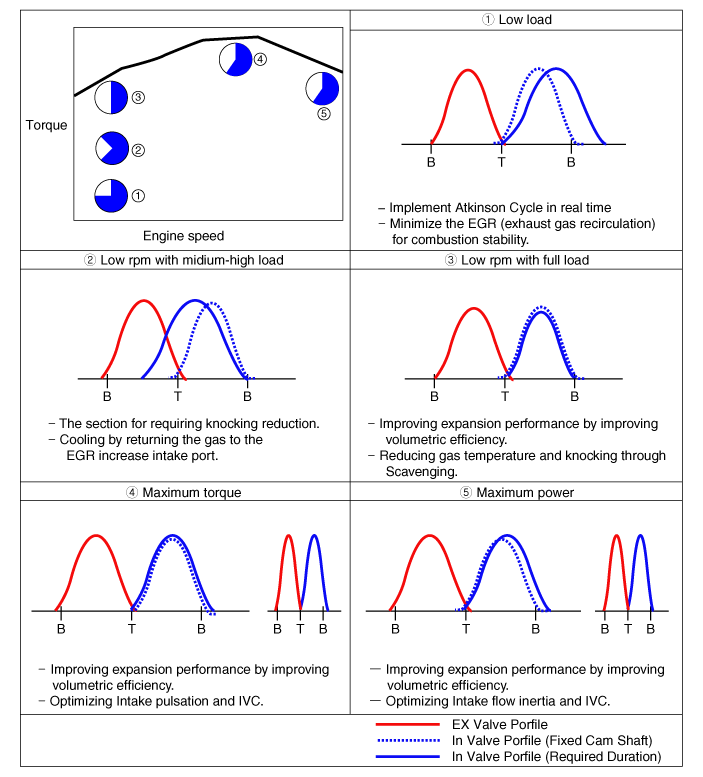
Repair procedures
| Removal |
| 1. |
Disconnect the battery negative terminal.
|
| 2. |
Remove the timming chain.
|
| 3. |
Remove the intake CVVT assembly (A) and exhaust CVVT assembly (B).
|
| 4. |
ve the camshaft front bearing cap (A) and camshaft bearing caps (B).
|
| 5. |
Remove the CVVD assembly.
Use the CVVD fixture
Do not use the CVVD fixture
|
| 6. |
Remove the exhaust camshaft (A).
|
| Installation |
| 1. |
Install the exhaust camshaft (A).
|
| 2. |
Install the CVVD assembly (A).
|
| 3. |
Install the intake CVVT assembly (A) and exhaust CVVT assembly (B).
|
| 4. |
Install the front camshaft bearing cap and the camshaft bearing caps
as following method with specified torque.
|
| 5. |
Install the other parts in the reverse order of removal.
|
 CVVT & Camshaft
CVVT & Camshaft
Description and operation
Description
The continuous variable valve timing (CVVT) system advances or retards the opening
of an intake or exhaust valve according to the ECM signals that are determined
based on engine RPM and load...
 Cylinder Head
Cylinder Head
Repair procedures
Removal
1.
Remove the engine cover.
(Refer to Engine and Transaxle Assembly - "Engine Cover")
2...
Other information:
Hyundai i30 (PD) 2018-2025 Service Manual: Repair procedures
Removal 1. Disconnect the negative (-) battery terminal. 2. Remove the steering wheel. (Refer to Steering System - "Steering Wheel") 3. Remove the steering column upper and lower shrouds after loosening the screws...
Hyundai i30 (PD) 2018-2025 Owner's Manual: RCCW (Rear Cross-Traffic Collision Warning)
The Rear Cross-Traffic Collision warning function monitors approaching cross traffic from the left and right side of the vehicle when your vehicle is in reverse. Operating conditions To operate: Go to the 'User Settings → Driver Assistance and select Rear Cross- Traffic Collision warning' on the LCD display...
Categories
- Manuals Home
- 3rd Generation i30 Owners Manual
- 3rd Generation i30 Service Manual
- Engine compartment
- Scheduled maintenance services
- EPB malfunction indicator
- New on site
- Most important about car
Air bag - supplemental restraint system
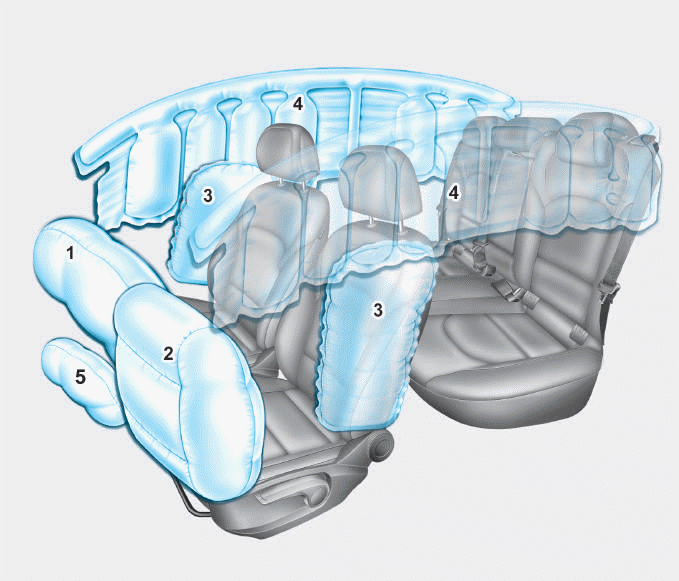
1. Driver’s front air bag
2. Passenger’s front air bag
3. Side air bag*
4. Curtain air bag*
5. Knee air bag*
6. Front passenger air bag ON/OFF
switch
Copyright © 2025 www.hi30.net



